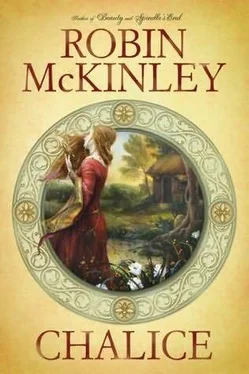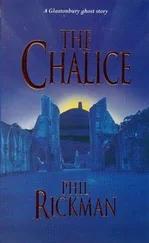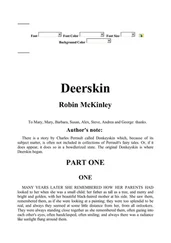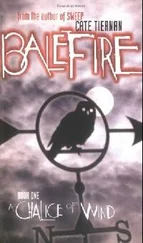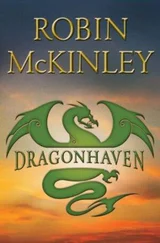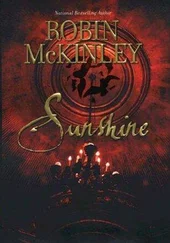She began to take her goats with her when she went off to tend her trees. They slowed her down when she couldn’t afford the time, but she could at least get to the boundaries of her lot that way. She’d stake them somewhere the browsing was good, and come back to milk them halfway through the day. She couldn’t bear to let the milk spill immediately lost on the ground, so she carried a bucket or a bowl with her, and left the milk for anyone or anything that might like it. She knew this was ridiculous but she did it anyway.
She had more buckets and bowls than she needed, for her family had been keeping the slightly awry ones through generations of making buckets and bowls out of odd bits of wood too good for burning. But losing one a day was rather extreme, so a few days later she went thriftily to where she’d left the first, expecting a sour, stinking mess and a polluted bucket. The bucket was where she’d left it, but it was empty—it didn’t even smell of milk—it smelled as clean as it would have if she’d just scrubbed it out ready to use. She hoped the foxes or the badgers or hedgehogs or whatever had enjoyed the milk, but she’d never thought of any of the sharers of her woodland as being such tidy drinkers. It was as if whoever it was were saying thank you.
But this is what happened with all the milk she left: the vessel shining clean and exactly where she’d left it when she went back to fetch it. She didn’t believe this was fox or badger or hedgehog conduct. She began to look warily at the milk she left behind when she took her goats back to the cottage; but it always acted like ordinary milk when she was there, and the milk she used at home still behaved itself as it should. She told herself she should let the magic—or whatever it was—work unmolested; but her curiosity got the better of her and at last she went back to where she’d left a big shallow basin of milk only the day before…and found the surface of the milk invisible under a carpet of her bees. “Bees don’t drink milk,” she said to them. When they lifted and flew away the basin was empty and clean.
When human beings first discovered honey, they had hunted the wild bees and followed them back to their nests. Some enterprising honey-lover must have noticed that bees often nested in hollow trees, and so, perhaps, rolled or dragged or hacked out a suitable log nearer home, left it at a convenient spot, and hoped a passing swarm might settle in it. Eventually someone began experimenting with making hives out of straw, mud, clay, pottery, and with sowing the seeds of plants bees were seen to like; and eventually with breeding more docile bees.
But the basic facts of beekeeping hadn’t changed that much: bees still made wax honeycomb to store their honey in; and a beekeeper had to both break into a hive and cut into the honeycomb to retrieve the honey.
Mirasol went home then and there, that day (the goats dragging sulkily behind her), and lifted one end each of all her movable hives, propped it and at the lower end sawed, pried or hammered in a hole—knowing as she did so that this was exactly the sort of drastic human behaviour that would upset the bees. Except that it didn’t. They flew placidly around her and the note of their humming never changed. She put a grass mat for a sieve under each new opening and a bowl under that, and left them. It was a nonsensical thing to do, but much of what was happening to her—and to her animals—was nonsensical.
And the daunting thing was—it worked. The honey streamed out in such quantities she almost ran out of bowls for milk. When the three hives in two old trees beside her little meadow began to drip honey down the boles, she merely tucked buckets among the tree roots. The buckets filled up too.
This was almost as distressing a problem as too much milk—no, more distressing, because honey was much more valuable than milk. And then her bees swarmed; again and again; big, healthy, vigorous swarms longing for places to build their nests and produce more honey. She, like every beekeeper on every demesne, wove spare skeps for just such an eventuality; but her mother had showed her how to use wooden or clay hives, and once she had decided she would kill none of her bees she’d found that straw skeps made the least satisfactory bee homes. Nor had any beekeeper she knew had to deal with swarm after swarm after swarm. A month after the deaths of the Master and Chalice she had bees living in all four corners of her roof and another swarm in the eave of the hearth inside; she had to leave the window near it open all day, and keep an eye out for returning stragglers in the evening if she closed it. Many of the trees round her clearing had at least one bee home in them, and the huge triple-boled hollow tree that had contained two bee families since she was a little girl now had six. By then she could no longer hear Nora and Spring bleat through the humming of the bees. Nor could she hear anything else.
And so she did not hear them when the Circle came to her cottage at the beginning of the fifth week after Selim had brought her the news. When she looked up from her midday milking—she had stayed home that day to empty the honey buckets—knowing that she was unkempt and wild-eyed, and with the remains of the still-sour stink of the cottage cellar easily penetrating to the bare bit of ground where she did her milking, queasily mixed with the intense sweet reek of the honey and the warm animal smell of the milk, her first thought was that they had come to turn her out of her woodright, and she burst into tears. She did not consider that the full Circle would not have come to deprive an obscure woodskeeper of her livelihood; all she could think of was that she was no longer doing her job, that the Circle must have gone past some of the recently neglected woods she was responsible for, and had detoured from their proper business to pass sentence on her failure.
The day the Circle came to her seemed a century ago now, although it was only a year. Once Nora and Spring had joined Kard’s small flock of four their milk production settled back to normal, although she heard later from Selim that it was two months before they stopped eating as much as the other four goats together. She could guess that Kard hadn’t dared complain—inheriting the goats of the new Chalice, who no longer had time for them, had to be an honour—but no small woodskeeper has much to spare, and if the new goats had gone on eating their heads off, Kard might have had trouble getting through the winter; profits from additional cheeses wouldn’t have come in time. Mirasol had been distressed at this story, declared that Selim should have told her sooner—“Why didn’t Kard say something to me himself, when I go to him now for my milk?” she exclaimed, even knowing what the answer was. But Selim smiled one of her new, uncomfortable smiles, said that Kard was very pleased with his new goats which were now both in kid, that probably she shouldn’t have told Mirasol at all except that this was a story that had a happy ending and she thought…and then her eyes slid away from Mirasol’s and she hadn’t finished what she had been going to say.
Then the new Master had returned but there was no happy ending for the demesne. Or perhaps for the new Chalice. Selim was the only one of Mirasol’s old acquaintances who made an effort to remain in contact, to be welcoming when the Chalice managed to snatch an hour away from her responsibilities. And Mirasol had lost her woodright after all: she had known that she could keep neither it nor her goats once she was Chalice, and so she gave them up because she had to. The woodright had been divided among the three other rights it bordered on; Selim was one of the beneficiaries and claimed, with a believable manifestation of sincerity, that the extra work was worth the extra result.
Читать дальше
